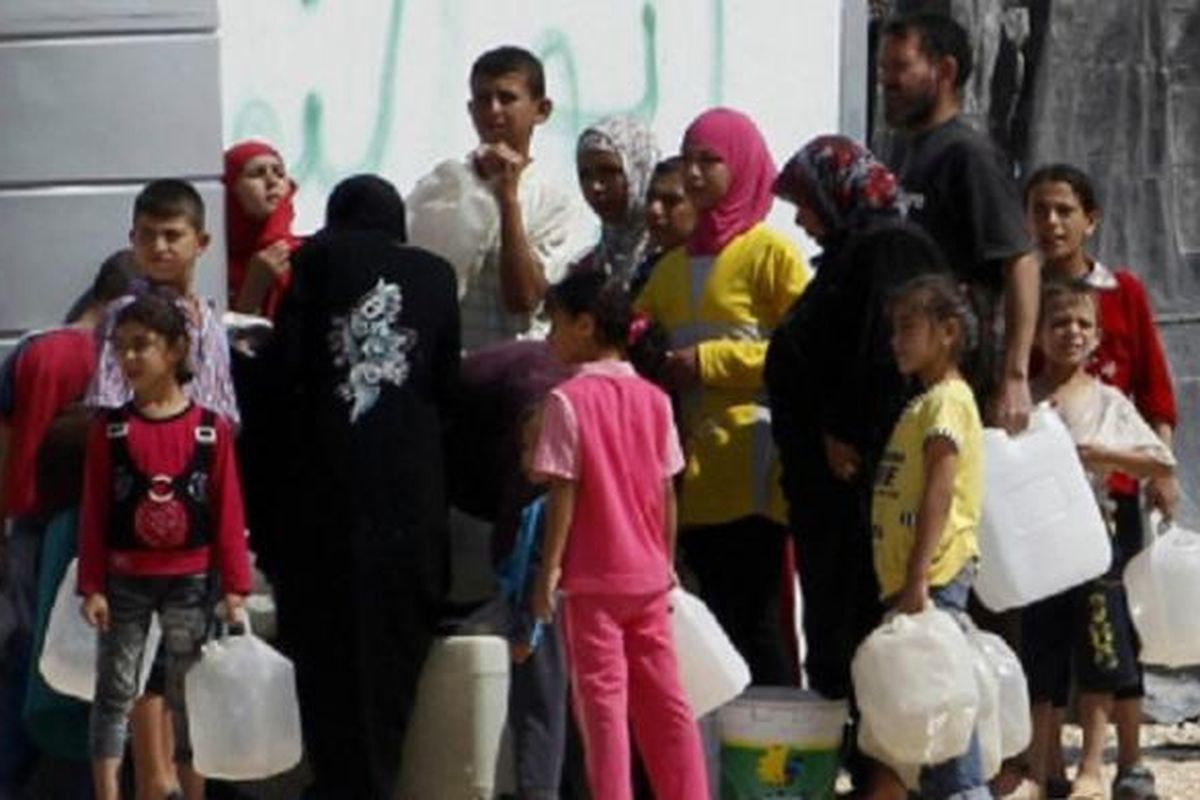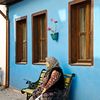A Year Later, Syrian Refugees Still Long to Return Home

HASAKEH, KOMPAS.com – Wadha Sharmoukh is among the many Syrian refugees wanting to return home after Turkey and their Syrian proxies captured her family's hometown in northern Syria from Kurdish forces a year ago.
Sharmoukh and others fled their towns and villages when Ankara's October 2019 offensive seized a 120-kilometer (70-mile) long strip of land on the Syrian side of its southern border.
Since then, she has given birth to her now five-month-old baby girl in a dusty camp crowded with civilians and fellow Syrian refugees vying for their return home.
Read also: Council of Europe Calls for Improved Migrant Housing in Spain
"My five-month-old daughter Berivan was born in the camps. She has never seen a home. She has just been squeezed into a tent," she told AFP in the settlement in the northeastern province of Hasakeh.
"What kind of life is that, of a child born and raised in a tent?" asked the 29-year-old woman, an Arab from the town of Ras al-Ain.
Sharmoukh and her family are among tens of thousands of Syrian refugees who have been forced out of their homes and into tented settlements in areas still controlled by the Kurds.
Their homes and belongings have been seized or looted in the year since Turkey's operation ended, human rights groups say, leaving them with little to return to — if they are able to return at all.
"The future is bleak and we feel hopeless," Sharmoukh said, explaining that accusations that her husband has been working with Kurdish authorities would make any return very dangerous.
Read also: Gallup Poll Shows Migrant Acceptance on the Decline Globally
"I try to forget sometimes, but how can someone forget their home and the things they have worked their entire lives to build?"
'Like a grave'
Life as Syrian refugees has not always been easy including for Sharmoukh who has to watch her three daughters grow up in the camps.
"I wonder about my daughters' future if things stay this way," she said inside their emergency shelter, her children gathered around her on a mat.
"When they grow up, how will they feel when they leave the camp and see how other people are living?"
She is most worried about her five-year-old daughter Roslyn, who is paralyzed in the legs and uses a wheelchair, from which other children sometimes push her to the ground.
"I try to keep her close to me, but she doesn't like to stay in the tent," Sharmoukh said.
In a nearby tent, Shams Abdulkader, a 40-year-old Kurdish mother of seven, said she cannot imagine living out the rest of her days in the camp.
Read also: Overhaul of Europe’s Asylum System Includes Faster Deportation Process
"We think of returning to our homes in Ras al-Ain day and night," she told AFP.
"I would have preferred to have died in my town than live in this camp, which feels like a grave."
But her hometown is not what it used to be even if she manages to return home.
Ankara's Syrian proxies — who have become bitter rivals of Syria's Kurds after successive Turkey-led operations against them — have made life intolerable for residents in Ras al-Ain and the nearby town of Tal Abyad, she said.
Read also: Dutch Government to Hold Syria Accountable for Gross Human Rights Violations
"They are our enemies," she said, describing them as "mercenaries".
"They kill people, kidnap women, steal our homes and cars, and no one stops them."
'I brought my house key'
UN High Commissioner for Human Rights Michelle Bachelet warned last month of growing violence and criminality in areas captured by Turkey and its Syrian proxies, including Ras al-Ain and Tal Abyad.
Her office has reported a pattern of violations in recent months, including increased killings, kidnappings, and seizures of land and properties.
Those who are critical of Turkey and its armed groups bear the brunt of these violations, the UN said.
The Syrian opposition has rejected any allegations the abuses were "systematic", and said it has referred the matter to its judicial authorities.
Another Syrian refugee, Salima Mohammad, has almost entirely given up on the idea of returning to her village.
Read also: Erdogan Tells Macron “Not to Mess” with Turkey over Eastern Med
The 42-year-old brought stones and mud to build a kitchen near her tent to cook for her 14-member family.
"Our village was torched," she said, her eyes welling up. "Even if we had hopes of returning, where would we go if there aren't any houses, or walls, or doors, or windows?"
Mohammad said she has not yet adapted to life in the camp where she is joined by other refugees from Syria.
"What meaning does the future have if we are not beside our families on our own land?" she asked.
The sentiment is shared by 65-year-old Qamra Ali, who was displaced with her family from the countryside of Ras al-Ain last year.
Her grandchildren sitting around her, the elderly woman rummaged inside a small bag and pulled out a key on a thick black shoelace.
"I brought my house key with me," she said. "If I die before I return, I want to be buried with it."
(Writer: Delil Suleiman)
Source: http://u.afp.com/3Kzv
Simak breaking news dan berita pilihan kami langsung di ponselmu. Pilih saluran andalanmu akses berita Kompas.com WhatsApp Channel : https://www.whatsapp.com/channel/0029VaFPbedBPzjZrk13HO3D. Pastikan kamu sudah install aplikasi WhatsApp ya.

































